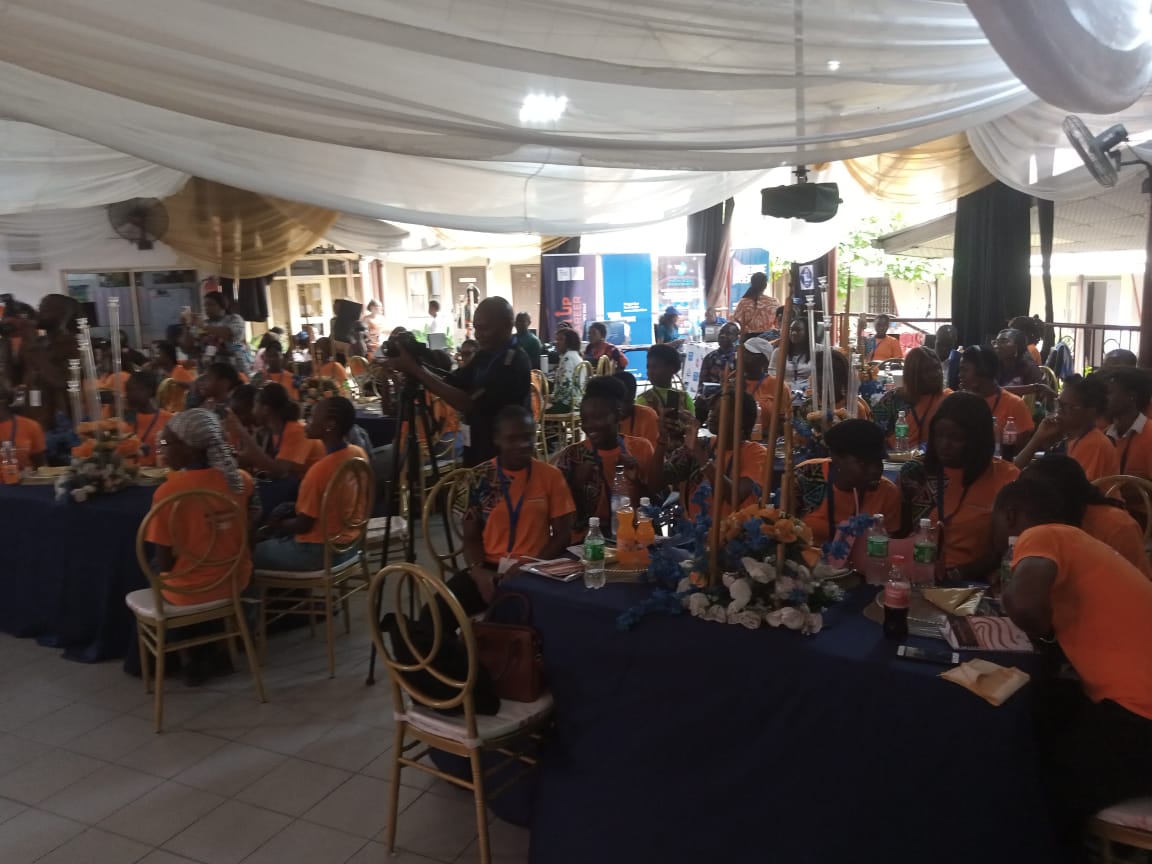Entertainment
How Nollywood Became World Second Largest Film Industry
Nigeria’s film industry is huge, both in productivity and reach. But how did it get to this stage and what are its origins?
The term ‘Nollywood’ was coined by the New York Times journalist Norimitsu Onishi in 2002 when he observed film-making activity in Lagos, Nigeria. The term mirrors two of the most famous areas of film production: Hollywood in the US, and Bollywood in India’s Bombay. For some, Nollywood encapsulates the array of actors and actresses emerging from the film-making activity in Nigeria; for others, it refers to the collection of the thousands of movies that have been made there.
However, Nollywood is best understood as referring to the process of film-making in Nigeria, where the films are produced using any and all tools available, adequate or otherwise. This can mean creating movies in volatile and uncertain conditions, often with incredibly short turnaround times. Observing this seemingly impossible production environment is what inspired Norimitsu to coin the term ’Nollywood’, which really refers to ‘nothing wood’, i.e., creating something out of nothing, we have come from ‘nothing’ to all that the world acknowledges today.
The first operators in Nollywood created stories and scripts that fitted into what was being produced at the time, while supporting a business model that guaranteed profit. The early stories were united by popular themes such as love, marriage and conflicts with mothers-in-law. Film-makers produced clusters of movies based on those themes until the trend tapped out and a new one took its place. But the themes of love, betrayal, conflict, deception and triumph unite most of the stories.
Early Nollywood movies reflect the colourful culture, architecture and, in many cases, the relative affluence in our Nigerian societies, while remaining true to authentic, believable storytelling. Stories had to resonate with target audiences and be supported by a strong cast, usually with at least one popular figure. The films were often shot in residences and offices over the course of a few days, and in iconic vehicles, such as BMWs and Mercedes, which were hired for short-term use.
More recently, however, global recognition has brought about bigger budgets, with interest from institutional finance, and more mainstream productions. The producers of Half of a Yellow Sun, for example, raised most of their estimated GBP 4.2 million budget from local investors in Nigeria. This development has somewhat diluted the inventive, cutting-edge instincts of the early film-makers in Nollywood.
In the early days, movies like Living in Bondage, Rattle snake, Violated, Glamour Girls, and Nneka the Pretty Serpent were financially very successful. In more recent times, movies like 30 Days in Atlanta, October 1, Ije, and The Meeting have also earned awards and critical acclaim. The jury is still out on the business success of these movies, as there are cries of rampant piracy. Though piracy was present in the early days of Nollywood, it was better handled then. Our main objective then was to be profitable, so we factored piracy into our profit calculations, as we didn’t have the resources to deal with piracy according to US or UK models.
Livingin Bondage provided imagery to a widely believed urban legend: human sacrifice for riches. Rattlesnake identified the strenuous path to success for a young man bearing great responsibilities early in his life, brought on by the loss of a parent and the oppression of extended family. Violated brought on the glamour of high society and the discrimination against the less fortunate, the hook being the triumph of love over these barriers. Glamour Girls had the benefit of iconic actors and elegant locations, telling a story of widely believed deception. 30 Days in Altlanta typified the increasing desire among film-makers to film abroad and alongside Hollywood talent.
Nollywood was unplanned – it sprang from the interplay of a few unique coincidences and circumstances.
Initially, it shared its audiences with the Nigerian Television Authority (NTA), equivalent to the British Broadcasting Corporation (BBC) in the UK. Between 1970 and 1990, the NTA created and broadcast a rich slate of compelling television shows, including The Village Headmaster, Cock Crow at Dawn, Mirror in the Sun, Behind the Clouds, Supple Blues, Checkmate and Ripples.
The NTA was the sole broadcaster of media content back then. When NTA made a decision in 1990 to stop producing media content, it released its in-house talent – and, most importantly, its audiences to other operators. Nollywood’s talent came from actors, writers, directors and producers who cut their teeth in the NTA environment, and who had benefited from state-sponsored training, albeit for television production.
The role of technology is crucial to the story of Nollywood’s evolution. Video cassettes and video cassette recorders had gained wide popularity in Nigeria on the back of a high-spending civilian government.
Nigeria has long known about conventional film-making; however, a visionary young trader (Kenneth Nnebue) with a passion for films thought that combining the talent from the NTA with VHS (Video Home System) technology to meet the demand of Nigerians hungry for new entertainment was a good idea. The result was the straight-to-video release of Living in Bondage, a film whose commercial success effectively launched a whole film industry.
Alongside these events, digital technology was rapidly replacing audio- and videotape in both music and film industries around the world. This resulted in huge stockpiles of discarded VHS cassettes in vast warehouses all over Lagos and the south-east of Nigeria (Onitsha and Aba).
‘VHS cassettes were an inexpensive way to distribute straight-to-video movie releases.’
The rapid sales of Living in Bondage revealed a way to capitalise on the large numbers of unused VHS cassettes in storage, namely by using them as an inexpensive way to distribute straight-to-video movie releases. This business model became the primary way to finance the making of more movies.
Another critical development in Nollywood came as its films started to reach new audiences abroad. Prior to the mass production of movies in Nigeria, Africans and people of African descent had only been served by film or video produced by either Europeans or Americans.
Nollywood made it possible for Africans to view films made by fellow Africans on a huge scale for the first time. The movies dissolved a lot of the mutual suspicion and mistrust, and encouraged intra-African tourism, trade and engagement, as the films cast light on common traditions, habits and cultures across the continent. They cultivated a massive African audience as a result. To date, this has not changed and has led to several other African countries, e.g., Ghana, Kenya, Tanzania, Uganda, and South Africa, getting involved in this kind of film production.
There is, however, a concern that many new film-makers are seeking validation and acceptance too eagerly from the mainstream global film industry. This raises questions about whether, by trying to emulate mainstream film production, they are sacrificing the advantages that have made Nollywood the second largest film industry in the world in the first place.
By: Charles Igwe
Igwe is CEO, Nollywood global media.
Entertainment
World Music Day: Alliance Française Port Harcourt Showcases Talents

The Garden City of Rivers State Port Harcourt at the weekend joined other parts of the world to celebrate the World Music Day, 2025, as Alliance Française showcases talents.
The event which is internationally known as Fête de la musique was held at cultural hall of the Alliance Française was a remarkable concert with memorable experience.
The event brought together music lovers, students, Artistes and members of the community For an exciting evening live performances and cultural exchange.
The Tide Entertainment reports that the world Music Day, which was created 1982 in France by the then Minister of culture, Jack Lang, ‘ Fête de la Musique’ is now celebrated in more than 100 countries every 21st June, marking the first day of summer with free concerts and musical showcases in public spaces.
In Port Harcourt, the Alliance Française honoured the tradition by spotlighting four(4) emerging artistes offering a platform to young talents shaping the city’s contemporary scene.
The audience enjoyed an unforgettable moments as they were entertained by the powerful performances from Preach A, who is known for blending fitness culture with spoken words and rhythm.
Also, artiste Emmayany delivering a vibrant fusion of afrobeat and afro pop. A singer, song writer and a performing artiste with a distinct sound.
Others were Amarachy Uko, a sensational singer with passion for soul , R&B, pop music and afrobeat.
While DJ Prospel closed the night with an energetic DJ set that got the entire hall dancing.
Earlier, the Director, Alliance Française, Port Harcourt Mrs Marina Lacal high lighted the mission of the Alliance Française saying that the event was more than a concert.
According to her, the event was put together by the Alliance Française to promote cultural diversity and foster artistic expression by connecting a long standing French tradition with creativity of the local music scene, adding that the event offerers an avenue for dialogue between culture and generations.
She stated that the event is used to promote professional and bring amateur artistes to limelight via the platform of the Alliance Française which is aimed at promoting the French Language through cultural heritage.
She explained that the celebration is also a broader series of Fête de la musique activities organized by the 10 Alliance Française across Nigeria in sync with concerts held in France and around the world simultaneously.
She further noted that the occasion reaffirms the role of Alliance Française as a cultural bridge, one where French heritage meets the pulses of Nigerian youth.
It would be recalled that no fewer than 19 artistes applied to perform at the event in Port Harcourt, but only four got approval for appearance.
Entertainment
PMAN Set To Implement Performance Levy ‘Tomorrow

The Governor of the Performing Musicians Employer’s Association of Nigeria (PMAN), Rivers State chapter, Comrade Moses Mabadeje popularly known as Mozy B said that the body has announced plans to implement performance Levy on artistes in the state with effect from 21st June.
This was carried in a statement released to The Tide Entertainment, yesterday by the Deputy Governor of the association, Comrade Abiye Howells.
According to the Governor, the announcement was made by PMAN, the only governing body that regulates the music profession in Nigeria, as authorized by the Government of Nigeria, in line with the Trade Union Act.
He stated that those affected by the Levy include (Non members)bands, groups, Hotels, Bars, lounges, Event Centres, show organizers, promoters and other stakeholders hosting events which feature live music performances within the State.
However, the Levy does not apply to members of the Performing Musicians Employer’s Association of Nigeria. (PMAN).
Comrade Moses Mabadeje, explained that this drive is aimed at financing the association and supporting the welfare and interest of musicians as outlined in Article 8 of the PMAN constitution as amended (2023). Consequently, a PMAN task force has been set up to enforce and swing into action to effect this move.
He further said that event organizers, promoters and owners of event centers are expected to comply with this regulation as the Governor has urged stakeholders to collaborate with the association to ensure the successful implementation of the levy and the peaceful co-existence between PMAN and Stockholders.
Nancy Briggs
Entertainment
“French Up Your Career” PH, 2025 :Consul General Of France Harps On Proficiency In French

The Consul, General of France in Nigeria, Laurent Favier has encouraged French Learners to improve their skills on the language, as there are lots of opportunities up for grabs on the job market with fluency in French Language, saying that there are many other career paths which are often less well known to learners of French.
 Participants at the “French Up Your Career” event held in Port Harcourt.
Participants at the “French Up Your Career” event held in Port Harcourt.
Favier who disclosed this during the just concluded third edition of the seminar tagged “French Up Your Career” organized by Alliance
Française, Port Harcourt explained that learning French doesn’t mean adding a language to your resume. It rather provides learners with new opportunities. Irrespective of their area of interest, be it diplomatic and International relations, international development, translation and Interpretation or journalism.
According to the Consul General, it was important to create awareness for young Nigerians in Port Harcourt who desire to have better understanding of how been fluent in French can create diverse career opportunities for users of the languages in Nigeria and the world at large, emphasizing that proficiency in French could possibly make learner a bridge between Nigeria and fast-developing regions.
“You previously heard this morning about how you can improve your French skills. This afternoon you will discover how being fluent in French can provide a significant edge on the job market and lead to professional careers that you may not have even considered before,”
“This event comes at the right time, as it launches the celebration of the richness and diversity of French-speaking cultures, which will mobilize us for more than a month throughout Nigeria and alongside other French-speaking countries,” Favier added.
He further highlighted that French is spoken by over 300 million people across the world, saying that, it’s one of the official languages of the United Nations, the European Union, and the African Union.
“There are many neighbouring African countries to Nigeria ,who have French as one of their primary languages of communication including Cameroon, Chad, and the Democratic Republic of the Congo. So, what does this mean for you as students here in Nigeria?” He asked
“These sectors in which the French Embassy is often mobilized are the business and marketing field for example, as French is often the preferred language in many multinational companies, particularly those in the energy, oil and telecommunications sectors. I’m thinking as well in technology and IT,” he said
He noted that French-speaking countries in Africa are investing heavily in tech, innovation, and infrastructure, revealing that companies in Tech are looking for bilingual professionals to assist with software localization, customer support, and managing projects in French-speaking regions.
“The French embassy is not only mobilized to help learners discover promising sectors. We are also providing our support and expertise in
training teachers and optimizing university programs,” he summed up
Also, the linguistics cooperation attaché, French Embassy in Nigeria, Magaly Losange, who also gave a lecture at the seminar, in an interview with Newsmen said that the main purpose of the seminar was to be more informative and supportive to those who want to make a skill out of French Language,saying that as the linguistics cooperation attaché of the French Embassy it is her duty to promote French language through culture.
She cited traditional stereotypes as a major challenge affecting the growth and development of French in Nigeria, as school, teachers at the primary and secondary level in most cases teach French using the traditional way, where students learn French, but could not put words and grammar together as a skill for communicate.
“French is important. I don’t see French as colonization, l see French as a key to embrace globalization, l hope that learners will be inspired and ready to embrace the global village,” Losange said.
She however said that the French Embassy is working to ensure that equipments to facilitate the learning of French is put in place to enable learners improve their skills fast, which in two to three years learners should be able to communicate with French, advising learners to be intentional with learning the language, through social media and other workable devices to advance their skills for certification and better opportunities.
Highlight of the event which had about 250 participants in attendance was the eloquence award ceremony where students were awarded for their eloquence in French language by the Director, Alliance Française Port Harcourt, Mrs.Marina Lacal alongside the Linguistics cooperation attaché of the French Embassy in Nigeria, Magaly Losange.
After two edition of the seminar it was the turn of the Alliance Française, Port Harcourt to host the Third edition.
It would be recalled that the first edition of ” “French Up Your Career” event was organized at the Alliance Française Lagos on October 23, the second one at UNILAG on November 24, 2024 respectfully.
-
Sports2 days ago
Eagles B Players Admit Pressure For CHAN Qualification
-

 Niger Delta2 days ago
Niger Delta2 days agoNDLEA Intercepts 584.171kg Hard Drugs In Bayelsa … Arrests 559 Suspects
-
Rivers2 days ago
Four Internet Fraudstars Get Different Jail Terms In PH
-
Business2 days ago
Food Security: NDDC Pays Counterpart Fund For LIFE-ND Project
-
Business2 days ago
PH Women Plan Alternative Stew, Shun Tomato High Prices
-
Foods/Drinks2 days ago
What To Know About Your Menu
-

 Niger Delta2 days ago
Niger Delta2 days agoEx-IYC President Lampoons Atiku’s Presidential Ambition … Declares It Negative Impact On N’Delta
-
News2 days ago
Tinubu Never Stopped 5-year Visa For U S. Citizens – Presidency ?

